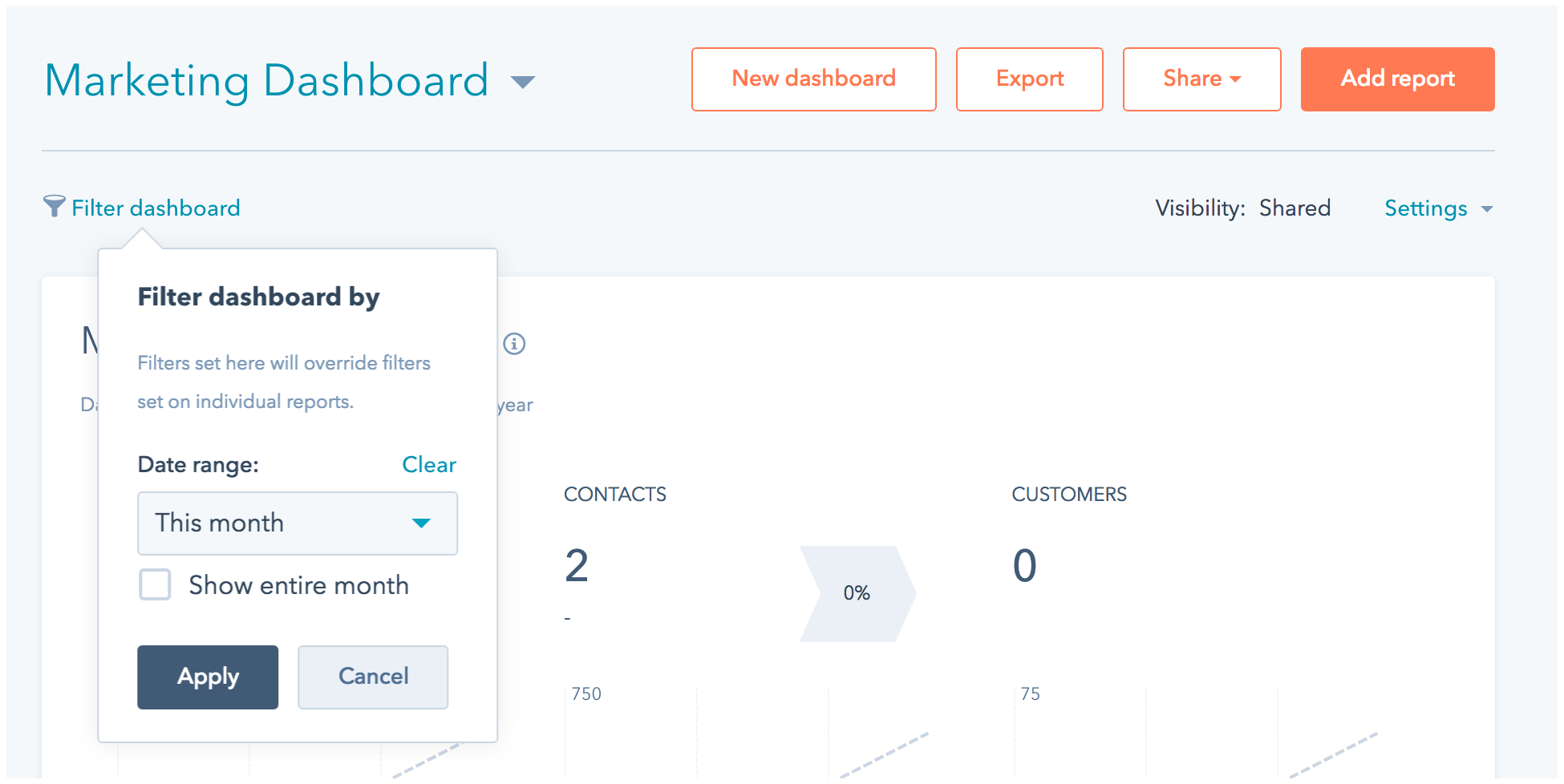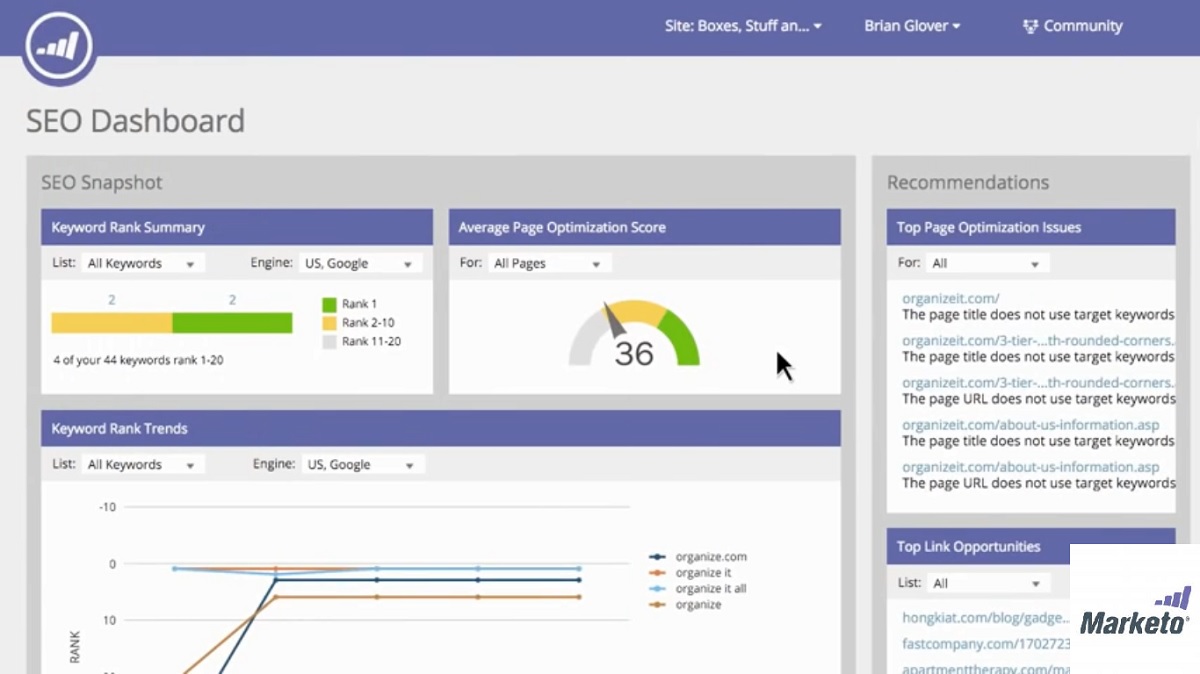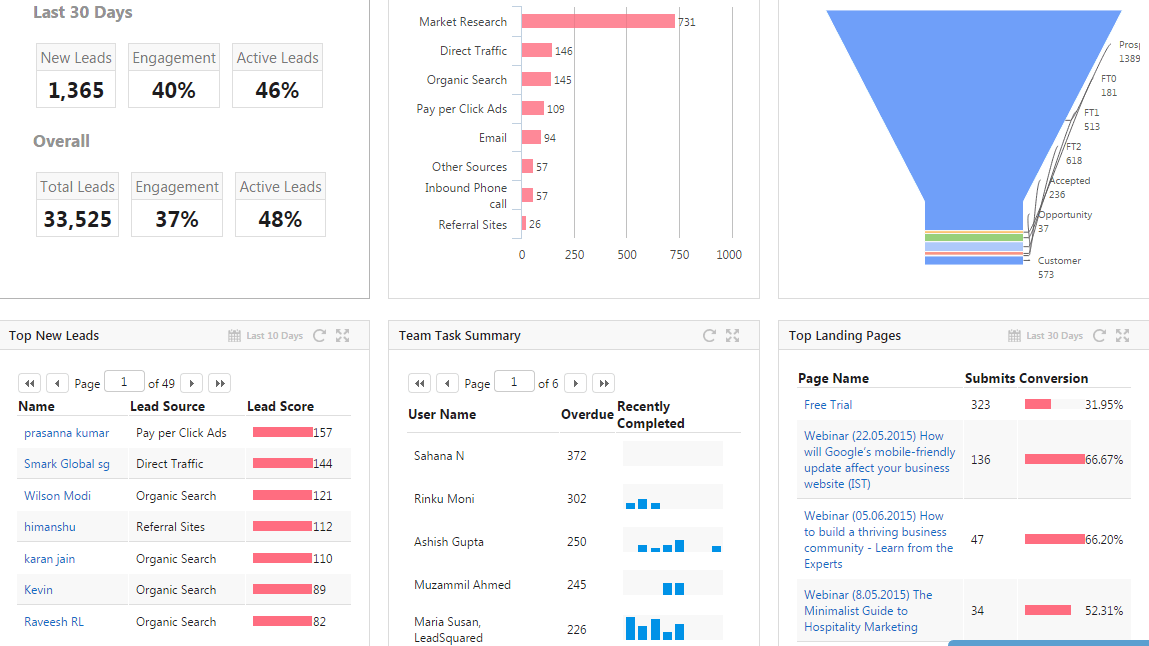Dedicated programs have become serious game-changers on how businesses execute their marketing campaigns and strategies. Marketing automation tools, in particular, have addressed the struggle of spending more time and manpower in implementing marketing efforts. For companies with limited means, marketing automation tools have saved them from overworking their resources. For larger businesses, marketing automation applications have made them more efficient.
But despite its tried-and-tested effectiveness, only an average of 51% of companies are currently using marketing automation. This, however, does not mean that other businesses refuse to recognize the advantages of using marketing automation, they just do not know the right tools to use, how to use them, and how to integrate them into their business operations.
Not all marketing automation tools came from the same mold, and not all companies have the same challenges in executing their marketing strategies. In this article, we will help you navigate through our best marketing automation software list. If you are still in the process of choosing which application fits your business best, you may find one here or at least narrow down your options. And if you are already using a marketing automation tool but are not satisfied with it, you may find better alternatives as well as helpful tips on what to look for in a sound marketing automation system.
What Is Marketing Automation Software?
Marketing automation software is a suite of cloud-based systems and tools. These tools are designed to optimize and streamline the meticulous marketing processes and increase marketing and sales teams’ efficiency. Automation applications reduce the time and manpower spent on creating, scheduling, and delivering campaigns through various channels.
Introducing automation to lead generation also allows you to tap into a pool of prospects not reached by your targeted email campaigns, such as your website visitors. Beyond the marketing efforts to gain more new customers, marketing automation tools also help in fostering brand loyalty among existing clients. Marketing automation software contributes to this by keeping them engaged through automated personalized content, conversational messaging, rewards, and other perks.

Hubspot Marketing provides a user-friendly dashboard where you can view your leads and targets and their status.
List of Best Marketing Automation Software
There is an extensive list of marketing automation tools in the market, so we gathered the leading software below:
- HubSpot Marketing: This inbound marketing software has a full-featured automation functionality that helps you convert your website visitors into quality leads. HubSpot Marketing comes with a website SEO tool as well as tools for creating quality and fully optimized marketing content, including landing pages. HubSpot Marketing also offers recommendations, such as the right target audience for your campaign, especially on social networks. The majority of the efforts are geared toward bringing more traffic to your website.
Aside from its marketing automation features, HubSpot Marketing comes with other robust tools, such as analytics, calls-to-action, email, ads, and social media monitoring. Pricing starts at $50/month or $40/month if billed annually.
- Pardot: A product by Salesforce, Pardot, is one of the newer B2B marketing automation software getting positive recognition. Its lead generation capabilities are built on smart data-driven programs. These tools allow you to capture the vital information that will help you create effective campaigns to convert your leads into buying customers and grow your business relationship with them. Some of Pardot’s marketing automation features are its intuitive lead generation and management, automated engagements, ROI reporting, B2B marketing analytics, personalized messaging, and more. Pricing for Pardot starts at $1,250/month (billed annually), and this plan accommodates up to 10,000 contacts.
- ActiveCampaign: A powerful and affordable marketing software for small to medium-size businesses (SMBs). ActiveCampaign brings sophisticated automation and AI-powered features previously available only to marketing software with a higher price point. These features include website and event tracking, automation goals, automation map, and machine learning tools. Pricing for ActiveCampaign starts at $9/month for every user and a maximum of 500 contacts.
- Marketo: This marketing software is known for its simplicity and its straightforward approach to streamlining the marketing process. It has an easy to use drag-and-drop interface for creating intelligent forms and professional landing pages. It also has a user-friendly SEO tool that gives you an insight into your competitors’ keyword rankings and links, so you can devise strategies to get ahead of them in search results. Furthermore, Marketo is capable of personalizing the content sent to your website visitors and customers according to their online behavior and where they are in the sales pipeline. As for the pricing, Marketo’s plans are quote-based.
- SharpSpring: An all-in-one and affordable marketing automation platform ideal for SMBs. SharpSpring helps you veer away from cookie-cutter email blasts by helping you o create behavioral-based emails to give our prospects a more personalized experience. Other features included are its dynamic forms and website, call and campaign tracking, visitor ID for monitoring, which companies visit your website, CRM integration, and more. Pricing starts at $550/month for an unlimited number of users and a maximum of 1,500 contacts.
- Omnisend: A powerful marketing automation platform for ecommerce that you can use for free. Omnisend does not only focus on email marketing but also on other messaging platforms like SMS, social media, and more. This marketing automation solution comes with email templates for you to create personalized emails easier and faster. Its Smart Send feature also ensures that only relevant emails are sent to the right recipients. Other features include A/B testing tools, welcome and birthday emails, smart contact segmentation, popup signup forms, and more.
Omnisend’s free version only has email campaign features and has a 15,000 email limit per month. Its paid plans start at $16/month.
- Exponea: This cloud-based marketing solution comes with advanced tools that help you cut straight to converting your leads into paying customers and fostering loyalty by improving customer experience. Exponea is capable of tracking customer data across all devices, as well as automatically delivering personalized content to your customers through different channels. Exponea also comes with advanced reporting and analytics tools and integrates with Google BigQuery and other third-party apps. As for the pricing, Exponea’s customizable plans are quote-based.
- EngageBay: A free all-in-one marketing automation platform for small businesses. EngageBay is fully equipped with an extensive list of tools and features for streamlining sales and marketing workflows from end to end. When it comes to delivering content and effective campaigns, EngageBay goes beyond email broadcasts, newsletters, and Facebook ads by also taking advantage of video marketing. Other features included are autoresponders, social suite, live chat, timezone-based email delivery, conversational inbox, custom reporting, and more. Other than the free version, EngageBay has paid plans, and pricing starts at $8.99/month for every user.
- Constant Contact: Primarily an email marketing software, Constant Contact comes with automation tools for both email and social media marketing. It has an easy to use email editor that you can use to customize more than a hundred responsive email templates. Aside from automated email sending, Constant Contact allows you to schedule and monitor social media marketing campaigns. Other features included are contact management, list segmentation tools, custom surveys, ecommerce integration, and others. Pricing starts at $20/month.
- Oracle Eloqua: A product of Oracle, Oracle Eloqua, is a leading marketing automation tool for creating and delivering personalized content and campaigns across different channels. Among its features include capturing both online and offline data of your audience for more accurate targeting and segmentation. It also supports cross-channel campaigns, lead management and scoring, sales and marketing alignment, and robust reporting and analytics. The pricing for Oracle Eloqua’s paid plans is quote-based.
- Marketing Creatio: This marketing platform comes with both standard and out of the box tools that give you a complete view of your customers. Marketing Creatio’s advanced data gathering features give you a deeper understanding of your customers’ preferences, which help in creating and delivering personalized email campaigns. Its other features are database segmentation, website behavior tracking, lead management, trigger campaigns, business process management, productivity tools, system designer, and others. As for the plans offered, pricing starts at $995/year for one user and a maximum of 1,000 contacts.
- IBM Marketing Cloud: The first digital marketing platform, IBM Marketing Cloud leverages behavior-based email marketing and strong analytics. Social media marketing is also not left behind as IBM Marketing Cloud offers automation tools for your social media campaigns, which also encourage consistent interaction with your social media audience. IBM Marketing Cloud can now also bi-directionally share data with Media Math Terminal One, which allows you to extend your marketing efforts and expand your audience via additional channels like video and mobile. IBM Marketing Cloud is offered on quote-based plans.
- AdRoll: This digital marketing platform offers AI-powered tools to target the customers you are after, gain loyal customers, and grow your brand. AdRoll’s audience targeting options include contextual targeting, demographic targeting, interest targeting, lookalike targeting, and retargeting old customers. Converting visitors into paying customers is also more efficient by using AdRoll’s attribution dashboard. This dashboard delivers a clear visual representation of window shoppers as well as the proper engagement route to turn them into paying customers. AdRoll also integrates with an extensive list of ecommerce applications like Shopify, Magento BigCommerce, and more.
- Sugar Market: Formerly Salesfusion, Sugar Market combines the marketing automation capabilities of Salesfusion and Sugar CRM in a single platform. Sugar Market aims to make it easier for businesses to deploy effective campaigns, keep track of results and activity of prospects, nurture and score leads, align with sales, and close winning deals. As for the pricing, it starts at $1,000/month, which accommodates 10,000 contacts. You can also pay for one-on-one training, which covers professional onboarding on how to set up your Sugar Market account and synchronize with your existing CRM system. For businesses that are still new to using marketing automation platforms, Sugar Market offers a free consultation with experts.
- LeadSquared: A cloud-based marketing automation for businesses of any size. LeadSquared comes with built-in templates for emails and landing pages. As for workflow automation, you can use either the preprogrammed workflows or create your own. LeadSquared also integrates seamlessly with other sales and marketing platforms, such as Microsoft Dynamics CRM and Salesforce. LeadSquared’s marketing automation plans start at $400/month (billed annually) for a maximum of 10,000 contacts.
Factors to Consider in Choosing a Marketing Automation Software
Even with the narrowed-down list above, choosing the right marketing automation platform for your business can be overwhelming. To help you with this, below are some of the things you need to consider before you decide to purchase a marketing automation software:
- Ease of use and implementation. Marketing involves an intricate series of processes, and marketing automation is a big help in simplifying them. But when a marketing automation tool is not user-friendly, it will only add to an already complicated setup. The effectiveness of your marketing automation solution does not solely rely on its features but on how you use them. This is why ease of use is an important factor to consider before you decide which marketing automation software you should try for your business.
- Cross-platform integration. Your marketing automation software must be capable of integrating with other systems, especially with CRM and sales platforms, to create a more efficient ecosystem for your marketing and sales efforts.
- Reporting and analytics. Reporting and analytics play a significant role in helping you make data-driven decisions, map effective marketing and sales strategies, and keep track of your campaigns’ performance. When choosing a marketing automation software, consider the accuracy, timeliness, as well as sharing options of your generated reports and analytics.
- Technical support. Check the customer support provided by vendors. Some vendors offer 24/7 support for their customers, expert help, and some even have training and onboarding options.
- Free trial: One of the best ways to assess if a software works for you and your company is by taking advantage of free trials. Although you will only be able to access limited features, you can get a general idea of how a marketing automation platform works. Also, before signing up for a free trial, make sure to review the vendor’s cancellation policy to avoid unnecessary charges in case you decide that the software is not what you are after.
- Price. When it comes to the price of a marketing automation software, value for money should be the priority instead of affordability. This also applies to sophisticated marketing automation platforms on the more expensive price range. The question should not only be which software you can afford but which software has the best combination of features for your business that also fits in your budget.
- SEO capabilities. SEO works hand in hand with marketing automation to make sure that your website and marketing efforts reach the right audience. While there are independent SEO tools available, a marketing automation software with built-in SEO features offers more convenience.

Marketo’s SEO dashboard shows how you can fully optimize your content by showing not only your rank but also the issues in your SEO strategies.
Latest Trends in Marketing Automation Software
Technologies used in the marketing landscape are constantly evolving. These days, below are some of the latest trends that are reshaping the industry:
- Machine learning. This application of AI technology has been driving positive results when it comes to helping businesses deliver automated and context-based interactions to engage their customers. At the same time, machine learning offers businesses relevant information about their customers to provide them with content and campaigns, tailored specifically to their needs and preferences.
- Chatbots. Chatbots are AI-powered conversational platforms that simulate communication with an actual human customer support representative. This technology is now being used to optimize digital marketing channels and deliver a creative and interactive marketing experience.
Potential Issues in Marketing Automation Software
Using marketing automation software does not guarantee a perfect and successful execution of your marketing campaigns and strategies. Here are some of the issues you may encounter:
- Limited personalization. Marketing automation platforms offer personalization options, but these may still be deemed as limited, especially when it comes to delivering real-time context-based engagement. Also, not all marketing software is capable of creating behavior-based content, which proves to be an effective way of giving customers a more personal experience.
- Email campaign-centric users. While email remains as an effective marketing channel, there is a tendency for businesses to regress to old practices, such as relying too much on email blast, instead of moving forward with utilizing the other automation tools for other channels, such as social media, video streaming platforms, etc. This, however, is more of a user than a software issue. And while it is true that old habits die hard, they can also prevent you from exploring your marketing automation software’s full potential.

